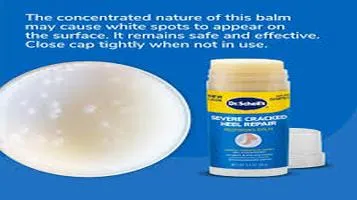Antimicrobial Mouthwash – A Comprehensive Look
Antimicrobial mouthwash is a specially formulated oral rinse designed to reduce oral bacteria, prevent plaque buildup, and maintain overall dental hygiene. Unlike regular mouthwash, which primarily freshens breath, antimicrobial mouthwash contains active ingredients such as chlorhexidine, cetylpyridinium chloride, or essential oils that target and eliminate harmful microorganisms in the mouth. These ingredients help to combat gingivitis, reduce the risk of gum disease, and prevent cavities by disrupting the formation of bacterial biofilms on teeth and gums. Regular use of antimicrobial mouthwash can enhance oral health, especially when combined with proper brushing and flossing. However, it's important to use it as directed, as overuse may lead to side effects like altered taste or tooth staining. For optimal results, consult with a dental professional.

In today's fast-paced world, maintaining oral hygiene is more crucial than ever. Antimicrobial mouthwash has emerged as a popular choice among consumers looking to enhance their dental care routine. But what makes this product stand out? In this review, we will delve into the efficacy, benefits, potential drawbacks, and overall value of antimicrobial mouthwash.
Efficacy and Benefits
One of the primary reasons people opt for antimicrobial mouthwash is its ability to combat bacteria and other pathogens that reside in the mouth. Unlike regular mouthwash, which mainly freshens breath, antimicrobial mouthwash is formulated to target and eliminate microorganisms that can cause dental issues such as gingivitis, plaque, and bad breath.
Gingivitis Prevention
Gingivitis, an inflammation of the gums, is a common problem that can lead to more severe periodontal diseases if left untreated. Antimicrobial mouthwash contains active ingredients like chlorhexidine, cetylpyridinium chloride, or essential oils, which have been proven to reduce the bacterial load in the mouth. Regular use can significantly lower the risk of developing gingivitis, making it a valuable addition to oral hygiene routines.
Plaque Control
Plaque buildup is another major concern for dental health. It is a sticky film of bacteria that forms on teeth and can lead to cavities and gum disease. Antimicrobial mouthwash works in tandem with brushing and flossing to break down and prevent the formation of plaque. Studies have shown that using an antimicrobial mouthwash can reduce plaque by up to 50% more than brushing alone.
Fresh Breath
While fresh breath is not the primary focus of antimicrobial mouthwash, it is a welcome side effect. By eliminating the bacteria responsible for bad breath, the mouthwash leaves your mouth feeling clean and your breath smelling fresh. This can be particularly beneficial for individuals who suffer from chronic halitosis.
Ease of Use
Another significant advantage of antimicrobial mouthwash is its ease of use. Incorporating it into your daily routine is simple and convenient. Most products require just 30 seconds of swishing around the mouth, making it a quick and effective step in maintaining oral health. This ease of use ensures higher compliance rates, as even the busiest individuals can find time to use it.
Potential Drawbacks
While antimicrobial mouthwash offers numerous benefits, it is not without its potential drawbacks. It is essential to consider these factors before making it a staple in your oral care regimen.
Staining
One of the most commonly reported side effects of antimicrobial mouthwash, particularly those containing chlorhexidine, is tooth staining. Over time, users may notice a brownish discoloration on their teeth. This staining is not permanent and can be removed by professional dental cleaning, but it is a factor to consider.
Altered Taste
Some users report a temporary alteration in taste after using antimicrobial mouthwash. This can range from a mild metallic taste to a more pronounced change in how food and drinks taste. While this side effect usually subsides after a short period, it can be off-putting for some individuals.
Potential for Resistance
There is ongoing debate about the potential for bacteria to develop resistance to antimicrobial agents. While more research is needed in this area, it is a consideration for those who are concerned about antibiotic resistance and the long-term effects of using antimicrobial products.
Cost and Accessibility
Antimicrobial mouthwash is generally more expensive than regular mouthwash. However, considering the additional benefits it offers, many users find the cost justified. It is widely available in pharmacies, supermarkets, and online, making it easily accessible to most consumers.
Overall Value
In conclusion, antimicrobial mouthwash presents a compelling case for inclusion in your oral hygiene routine. Its ability to combat gingivitis, control plaque, and freshen breath makes it a valuable tool in maintaining dental health. The ease of use and accessibility further enhance its appeal.
However, potential drawbacks such as tooth staining, altered taste, and the cost are important considerations. It is always advisable to consult with a dental professional before adding any new product to your oral care regimen, especially if you have underlying dental issues or concerns.
In summary, antimicrobial mouthwash offers a significant boost to oral hygiene efforts, making it a worthwhile investment for those committed to maintaining optimal dental health. Its benefits far outweigh the minor inconveniences, making it a recommended choice for a healthier, cleaner mouth.






